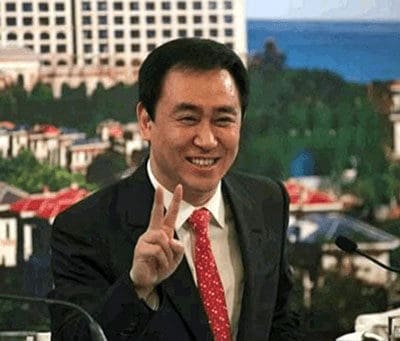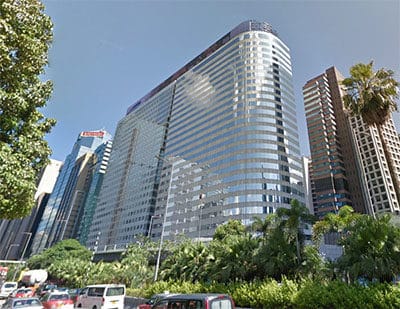
It remains to be seen if Evergrande’s chairman, Xu Jiayin, can keep claiming victory
The mainland’s largest developer by sales in 2017, China Evergrande Group, is resorting to pawning its most valuable offshore asset in an effort to raise $1.5 billion to pay down its debt and make dividend payments, according to a Reuters report citing unidentified sources familiar with the matter.
Although the company’s high-profile billionaire chairman Xu Jiayin was freshly crowned China’s wealthiest real estate person for the second year in a row with assets estimated at RMB 215 billion ($31 billion), Evergrande is resorting to borrowing money against its equity in the China Evergrande Centre in Hong Kong’s Wan Chai district as slowing home sales and tightening credit conditions put pressure on even the mainland’s most conservatively managed developers.
Evergrande, long-known as one of the mainland’s most aggressively leveraged builders is making the deal before it even finishes the purchase of the former Mass Mutual Tower on Wanchai’s Gloucester Road, which it agreed to purchase in a multi-stage HK$12.5 billion ($1.6 billion) deal in 2015.
Paying Off $16.4 Billion in Offshore Debt
Evergrande has yet to make a statement regarding any potential new financing, however, the Reuters report indicates that the highly indebted Shenzhen firm is reportedly in negotiation with financial institutions to offer the 26-storey grade A office building as collateral for a $1.5 billion loan.
One potential explanation for the financing ploy is Evergrande’s offshore debts, which totalled $16.4 billion as of the end of June, in a period when mainland corporates are finding it increasingly difficult to move funds offshore and the flows of new onshore bond funding has been severely restricted.
Earlier this month, officials at electric supercar maker Faraday Future accused Evergrande of failing to follow through with what the California-based, Chinese-managed company said was an earlier agreement to commit $500 million in fresh capital to the company. Evergrande had agreed in June to invest $2 billion in the startup to gain a controlling stake in the venture.
Hocking a Hong Kong Office Tower
The source of funds for Evergrande’s potential self-bailout is the building that Evergrande paid a then-record price of HK$12.5 billion (then $1.6 billion) for in 2015 in one of a number of transactions with Joseph Lau’s Chinese Estates Holdings. In an unusually structured purchase agreement with the Hong Kong developer, Evergrande agreed to pay HK$1.25 billion up front for the building with the remaining balance to be paid off in installments over the next six years.

Evergrande bought the Mass Mutual Tower for $1.6 bil in 2015
The search for a loan comes despite the developer having posted a whopping 101.5 percent surge in core profit during the first half of 2018, with the company having proposed in its mid-year earnings report to pay a $2.14 billion dividend payout of RMB 1.13 or HK$1.287 per share for the two financial years of 2016 and 2017.
Also during the first half of 2018, helped along by strong sales in China’s third and fourth-tier cities, where Evergrande develops many of its projects, the company that once sat on China’s second largest debt pile, cut its net gearing ratio to 127 percent by the end of June from 184 percent at the end of 2017. During that same period, Evergrande’s total borrowings dropped as much as eight percent.
The developer said in its most recent earnings announcement that it aimed to further cut its leverage to about 70 percent by June 2020 by repaying high-interest debts and curbing land purchases.
Cost of New Sites Keeps Climbing
But as developers expect a slowdown in sales after two years of government measures aimed at cooling the red-hot market, it remains highly challenging for the property sector to deleverage.
Developers accustomed to a period of rapid growth have suffered since the government began strictly enforcing home purchase restrictions in late June. Sale of new homes in China fell by 3.6 percent in September compared to August in terms of floor area, according to figures from the country’s National Bureau of Statistics.
In January this year, Evergrande purchased a 1,982-unit residential site in Hong Kong’s Tuen Mun area from Henderson Land Development for HK$6.6 billion. Reuters reported earlier this month that the mainland developer was seeking $5.28 billion fixed-term loan for sponsoring the purchase and development of the plot. The loan would have a term of 3.5 years and China Everbright Bank was the sole lead manager and book keeper of the loan.
Leave a Reply